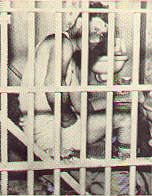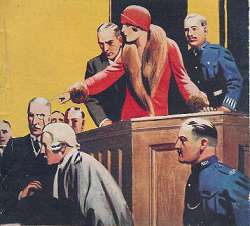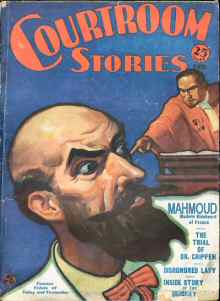 COVENTRY-BORN Mohammed Ajmal Khan, who also spent time growing up in Pakistan, acted as a "quartermaster" for al-Qaida-linked terrorist organisation Lashkar-e-Taiba, getting whatever they required for their operations. The defendant used an e-mail address he set up at Coventry University to research and purchase equipment, particularly items which were more readily available in the west.
COVENTRY-BORN Mohammed Ajmal Khan, who also spent time growing up in Pakistan, acted as a "quartermaster" for al-Qaida-linked terrorist organisation Lashkar-e-Taiba, getting whatever they required for their operations. The defendant used an e-mail address he set up at Coventry University to research and purchase equipment, particularly items which were more readily available in the west. Prosecutor Andrew Edis told the court: "(He) succeeded in acquiring some equipment and he planned to gather more. He acted as a quartermaster for the terrorists, obtaining whatever was required, particularly items that are more easily acquirable in the west than in Pakistan. Shortly before his arrest in March 2005 there is evidence he was acquiring equipment for himself to use, from which can be inferred he was planning to go back to Pakistan to join the fight personally."
Khan also bought air pistols which could be converted to fire bullets which, said Mr Edis, "would be useful in committing murder". He said he could not say where they were intended to be used, but added: "It is more likely they were personal defence weapons for operatives in the UK."
He said the Crown believed Khan was a "dedicated terrorist and a person of authority in Lashkar-e-Taiba", adding: "He is trained in Pakistan and travelled widely. He clearly has a source of funds for this work which has not been fully identified. He is an important man in this terrorist network."
Mr Edis said he used innocent dupes as a front for his activities, including Palvinder Singh, of Anley Way, Coventry, whose bank accounts and name were used to buy military equipment. Mr Singh, aged 30, was last week cleared of conspiracy to supply property for the purposes of terrorism. Khan used the then homes of a cousin in Broad Street and Hampton Road, Foleshill, and his mother's then home in Ransom Road while carrying out the conspiracy. Intercom equipment used inside planes was also delivered to his own former home in Freeman Street, Foleshill.
Khan was arrested during a swoop in Foleshill Road, Coventry last March. He pleaded guilty to conspiracy to supply cash and equipment for the purposes of terrorism. In mitigation, Lawrence McNulty said what Khan had managed to acquire amounted to very little and if he was a key player in Lashkar-e-Taiba it suggested the organisation was a small one.
But jailing him, Mr Justice Fulford said: "Terrorism... profoundly affects countless numbers of innocent lawabiding people both directly and indirectly." Khan was jailed for eight years for terrorism and a further year for contempt of court after repeatedly refusing to answer questions during the trial of Palvinder Singh. The court heard he is now likely to face extradition proceedings to face further similar charges in America where it is alleged he also had links with terrorists.

 LONDON: A British man who bought equipment which might have been used in attacks on coalition troops in Afghanistan was jailed on Friday after he admitted being a terrorist quartermaster, UK police said.
LONDON: A British man who bought equipment which might have been used in attacks on coalition troops in Afghanistan was jailed on Friday after he admitted being a terrorist quartermaster, UK police said.  A former delivery company worker has been cleared of conspiring to supply money and firearms to a terror group allegedly linked with al-Qaeda. A court heard claims
A former delivery company worker has been cleared of conspiring to supply money and firearms to a terror group allegedly linked with al-Qaeda. A court heard claims  A British mother of two has appeared in court accused of providing weapons and military equipment to a terrorist group allegedly linked to al Qaida.
A British mother of two has appeared in court accused of providing weapons and military equipment to a terrorist group allegedly linked to al Qaida.  British police charged two men and a woman on Saturday with a plot to fund terrorism and said one of them belonged to a banned Kashmiri militant group based in Pakistan. Britain's Metropolitan Police said
British police charged two men and a woman on Saturday with a plot to fund terrorism and said one of them belonged to a banned Kashmiri militant group based in Pakistan. Britain's Metropolitan Police said